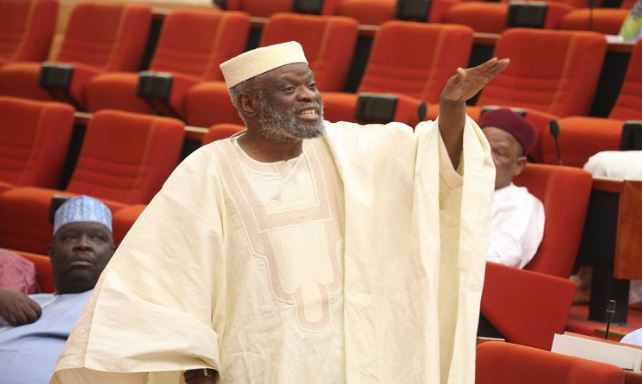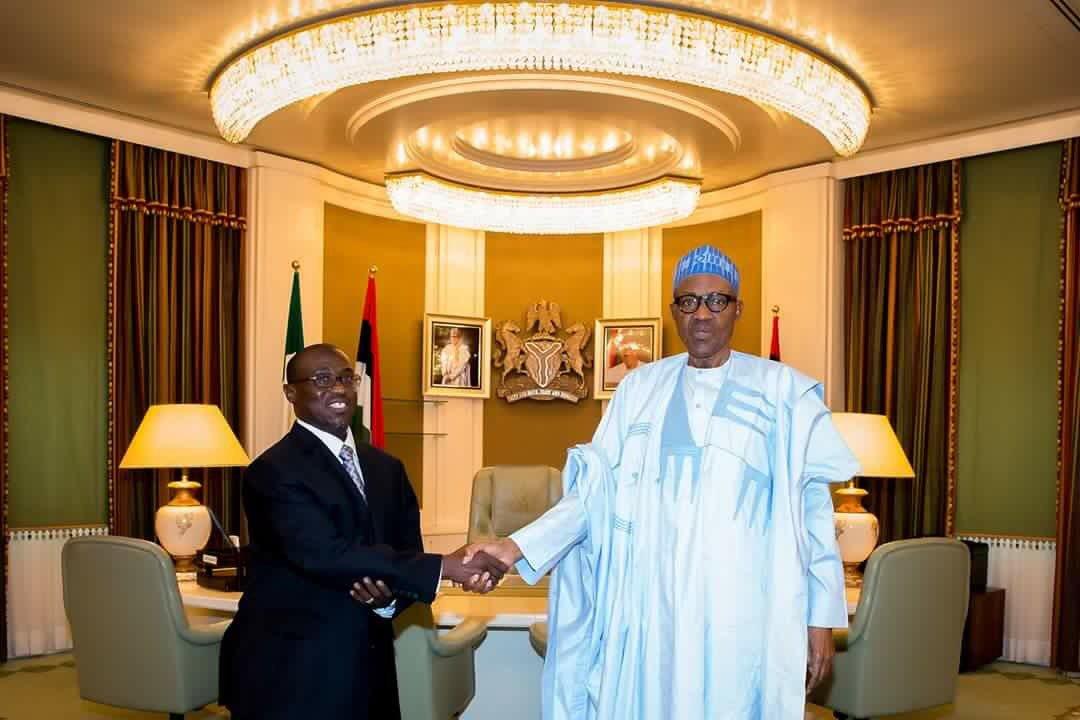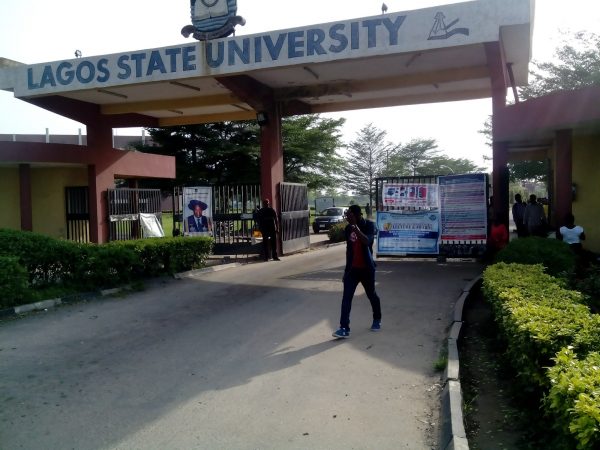As at May 2016, there were at least 72 Arbitration institutions in Africa. Most of these institutions are privately run. By implication, arbitration is driven more by the efforts of private persons than by the efforts of government. While that is not in itself wrong, there are success stories in government-supported arbitral institutions. For instance, the Cairo Regional Centre for International Commercial Arbitration (CRCICA) is a respected arbitral institution in Africa.
It started as the product of an agreement between the Asian-African Legal Consultative Organization (AALCO) and the Egyptian government. The government, therefore, played a major role in setting this organisation on its feet. Even better, the Egyptian Government endowed the CRCICA with all the privileges and immunities that will permit it to run as a truly independent body. To that end, CRCICAis accepted for its independence and the Centre is not known to have been unduly influenced by the Egyptian state, which has itself received heavy fines by CRCICA panels. For instance, on 31 January 2018, a CRCICA panel awarded damages over $1 billion against the Egyptian government. Lastly, the Global Arbitration Review reports that the Egyptian government has provided caseload opportunities for CRCICA by selecting CRCICA as the institution of choice in bilateral and multilateral agreements.
In Mauritius, the LCIA ran an institution known as the LCIA-MIAC which was the product of a 2011 joint agreement between the Mauritian government and the LCIA. That agreement ended in 2018 with LCIA terminating its role and leaving the Mauritius International Arbitration Centre (MIAC) to operate independently. The government’s role was crucial to negotiating the joint-venture which exposed MIAC to the top-tier arbitration access that LCIA provides. The Mauritian government has also not hidden its intentions to make Mauritius a state-of-the-art hub for arbitration in Africa. Till date, MIAC prides itself in the full support that it gets from the government of Mauritius. However, MIAC is independent ofthe government, and strict provisions for independence are in the MIAC constitution.
Another good example is the Kigali International Arbitration Centre (KIAC).KIAC is a generally a private-sector idea. However, it received the strong support of the Rwandan government to take off and operate. The Rwandan government promulgated LAW N°51/2010 which established the KIAC and its organs. That Act confers KIAC legal personality as well as financial and administrative autonomy. The Rules of the Centre were created by ministerial order in an official gazette. In essence, the government threw its weight behind the KIAC to facilitate the Centre’s swift development.
Advertisement
In Nigeria, the Lagos Court of Arbitration (LCA) completely revolutionised arbitration in Nigeria, particularly in Lagos State. In a state where arbitration was rapidly growing, the establishment of the LCA caused arbitration practice to explode. The centre is home to at least three different arbitration bodies; the hearing rooms are purpose-built for arbitral proceeding and thus more convenient than hotel rooms and meeting rooms which used to be the norm. The hearing rooms are just floors above the administrative offices of several arbitration institutions which means that the facilities and staff of those institutions are only an elevator-ride away from hearing venues, thereby significantly reducing secretarial costs. The Court has different auditoriums which imply that the centres can now host symposiums, workshops and pieces of training in a venue exclusively for arbitration and where they get scheduling preferences, as opposed to hotels and eventual public halls. Also, a sprawling building dedicated solely to arbitration has significantly reduced the risks of non-parties chancing upon parties, witnesses, arbitrators and hearings. All these have been made possible by the building of the LCA by the Lagos State Government and the enactment of the Lagos Court of Arbitration Law (Law No. 8 of 2009.
These examples all show that governments can play a strong role in assisting arbitration. The greatest fear that arises from government assistance in arbitration is the threat of interference. The models above may present a guide of just how a government can ensure and demonstrate the independence of arbitral practice within its shores.
Creation of a multilateral framework
Advertisement
Governments are in a position to create a multilateral framework for arbitration. Governments have the manpower to negotiate at that level and governments have the financial capacity to fund such arrangements. Three examples are relevant here.
The first is OHADA (Organisation pour l’harmonisationen Afrique du Droit des affaires or Organisation for the Harmonization of Corporate Law in Africa). OHADA is the creation of 17 West and Central African civil law states. The OHADA framework includes the Common Court of Justice and Arbitration (CCJA) which supervises the OHADA Arbitration Centre. The Arbitration Centre, headed by the Secretary-General, administers arbitrations under the supervision of the President of the CCJA. The CCJA ultimately entertains appeals/challenges from arbitral proceedings as well as enforcement and award-validity proceedings. The CCJA also performs appointment roles – the CCJA is responsible for creating and updating a list of arbitrators. Every year, the CCJA meets to consider the list and update same based on nominations received year-round. Members of the court are themselves excluded from the list. The court appoints arbitrators taking into account their nationality, domicile and qualifications.
The second is the Africa Continental Free Trade Agreement. This is a trade agreement to which about fifty-two (52) African countries have signified interest, in one form or the other. Arbitration features prominently in this agreement. A reference may be instituted upon referral by a Dispute Settlement Board (DSB) set up pursuant to the Agreement. On the other hand, it may be set up directly by the parties, pursuant to Article 27 of the Agreement. The Secretariat is required to provide support to tribunals including assisting in the composition of tribunals. The Secretariat is also authorised to avail tribunals with experts that may be relevant to references.
The third is the China-Africa Joint Arbitration Centre. Realising that about $60 billion of Chinese investment was flowing to Africa, China took steps to protect those investments by negotiating the creation of the Centre. Crucially, CAJACis not regarded as a standalone institution but a part of the Forum on China-Africa Cooperation (FOCAC), the official forum between the governments of all African states, except Swaziland and China. CAJAC utilises existing arbitral institutions in Africa, designated as CAJAC Centres– like the Nairobi Court of International Arbitration, the Arbitration Foundation of Southern Africa for Eastern and Southern African disputes respectively. The Chinese Centres are the Shanghai International Arbitration Centre (SHIAC), Beijing International Arbitration Centre (BIAC) and the Shenzhen International Court of Arbitration. This arrangement is expected to increase the frequency and quality of references that the arbitration centres will entertain.
Advertisement
Infrastructure and superstructure
When parties debate arbitration venues, they consider a lot of factors. In debating the seat of arbitration, parties consider the state of the law, the attitude of the judiciary, the ease of recognition and enforcement, the legal view on finality, etc. However, the considerations for the venue are completely different. Parties already have an idea of the lawyers they are likely to brief and the arbitrators they are likely to appoint. They want a venue that is easy to access, that is comfortable, and that is security for their representatives and arbitrators. They also do not want to inflate arbitration costs by having to fly in the support staff integral to arbitration. Thus, the more developed a country, the likelier it is to be chosen as a seat.
While discussing the rise of arbitration in Mauritius, Keating Chambers explains that Mauritius has certain practical advantages as a choice venue for arbitration. These advantages were identified as excellent hotels and conference centres which serve as excellent venues for arbitrations, available good secretarial support and good security. They also note that “Mauritius has good transport links with Dubai, Nairobi and Johannesburg and multiple flights a day to all of the major hubs”.[4]
The 2010 Queen Mary Arbitration Survey found that of the top six reasons for selecting arbitration venues, convenience ranked third, and general infrastructure ranked fifth. Both ranked higher than the “location of people, including legal advisors”. In effect, responders to that survey were willing to bear the cost of flying their people and legal advisors in, if it was convenient and the infrastructure was right. With particular regard to infrastructure, the (26% of responders identified good transport connections while 21% were concerned about hearing facilities (including translators, interpreters and court reporters). Safety and the absence of bribery also featured as important factors.
Advertisement
Experience tells us that infrastructure cannot grow without government support. The private sector cannot just decide to build connecting bridges between cities without the permission of municipal authorities. Permission alone is not all the private sector will need – active funding, legal backing and allied development are all essential. Nigeria has an oceanfront development, the Eko Atlantic City which was conceived to be a major upscale building development. However, property interests are reported to be low because the road network leading to the development is notoriously narrow for the traffic it caters to and heavily prone to flooding.
If the arbitration user is concerned about bribery, there is nothing he can privately do to prevent bribes from scuttling his arbitration, if the government does not pursue an aggressive campaign against bribery. If the country has a poor transport system that discourages arbitrators and foreign counsel from flying in, arbitral institutions might find themselves running small domestic claims only. Governments must provide infrastructural backing.
Advertisement
Treaties and contracts negotiation
As explained earlier, CRCICA is the arbitral institution of choice in most agreements to which Egypt is a party. Experience tells that agreements signed by the Nigerian government regularly select the Regional Centre for International Commercial Arbitration, Lagos as the arbitral institution of choice in its agreements. Per capita, no entity executes more contracts than governments. The government is therefore in the best position to popularise arbitration law by executing arbitration clauses and by choosing institutional references above ad hoc references to boost the reputation and caseload of verified arbitral institutions.
Advertisement
Presently, African governments have exported scores of arbitrations by choosing non-African arbitration centres, accepting foreign law jurisdiction clauses and agreeing to foreign venue arbitration provisions. When the disputes arise, it may just make economic and practical sense to choose a foreign arbitrator who lives a train-ride away from the venue and to instruct counsel who are just a few blocks away from the arbitration centre, to the detriment of local arbitrators and counsel. Thus, there is a need for a rethink.
Law enactment
Advertisement
The example of the LCA Act and the Rwandan instruments in support of the KIAC show us that the government’s law-making powers are a compliment to arbitration. African Governments can support arbitration by deliberately pursuing the enactments of laws that support arbitration, standardise arbitration and make its arbitration practice less tedious for parties. Many African countries are already doing this.
Counsel instruction
As governments are parties to so many arbitration clauses, they are the single most frequent appointer of arbitrators as well as the single most frequent instructor of counsel. It was recently reported that an analysis of ICSID cases involving East African state parties revealed that “all of them, save for one involving Burundi, involved the state being represented by an international law firm (ILF)”.[5]
If African state parties in arbitrable disputes continue to ship out references, homegrown arbitration competence will suffer. The report that all cases involved representation by an ILF does not paint the full picture – the truth is that in most of these cases, the ILFs partner with local counsel. Nevertheless, the point that is made by such analysis is valid – African practitioners do not often get a healthy bite of arbitration pie. The imbalance is also more vivid when it is noted that European state parties do not instruct African counsel,and the European counsel they instruct never see the need to partner with African counsel in defending such European states. The effect is that out of at least four separate counsel opportunities (as lead and supporting counsel in African/foreign references), the African counsel has just one, while his European counterpart has at least three.
African governments in supporting arbitration must deliberately pursue the education of domestic practitioners. This can be achieved by insisting that only local counsel are instructed (with liberty to partner with colleagues from anywhere else in the world). That way, the local counsel are not just spectators – they dictate the strategy of the reference, they conduct oral hearings (except when they cede/share responsibilities), and they sign the core arbitration documents. Scholastically, the globalisation of learning has placed African arbitrators practically at par with their Euro-American colleagues. Experientially, however, the gulf is wide; and African governments have to play a role in this regard.
A part of African governments playing a role is in African governments recognising their place as contractual parties and not just sovereign entities. African governments very rarely refer otherwise arbitrable disputes to arbitration – they choose rather to pressure their contractual parties using their sovereign apparatuses such as law enforcement and regulators. The result is that African states are now perpetually respondents in arbitration,and the lawyers that represent them have to wait for investors and contractual partners to take the initiative before they can experience arbitration.
While that is happening, developments in arbitration in other continents now see states going on the offensive. In Urbaser S.A. and Consorcio de Aguas Bilbao Bizkaia, Bilbao Bizkaia Ur Partzuergoa v Argentina, Argentina was the respondent, but it pursued and won a counterclaim. That decision has now sparked the contemplation that states can begin to institute human rights claims against investors before ICSID. Commendably, Nigeria too has taken steps to reverse the perpetual-defensive stance in arbitration as it just obtained a $2.6 billion judgement against an oil firm.
Appointing arbitrators
There have been instances where an African state party submitted to a reference before a panel on which none of its nationals was present. In some instances, institutional rules prevent the appointment of nationals of disputing parties as arbitrators. However, such prohibitions do not explain the failure to appoint other Africans. Certainly, if the rules of an institution prohibit Nigeria from appointing a Nigerian to a tribunal, those rules do not prohibit the appointment of a Ghanaian. In any event, this unfortunate appointment imbalance hadexisted even when there were no institutional prohibitions, the presence of. In the past, African states have completely overlooked arbitrators from fellow African countries and appointed from other continents, blinded by the myth of superior arbitration knowledge.
Experience has shown that on some points in an international trade dispute, arbitration knowledge alone is not enough. Arbitrators have to have a working knowledge of the region and allied issues surrounding the dispute. Without a doubt, a non-African may have this knowledge, but it is likelier to be found in an African.For these reasons, as contractual parties, African states must now realise that the appointment of an arbitrator is not merely formal – it marks the first sword-stroke in the dispute resolution process. African disputes should be resolved by Africans.
Again, state parties thinking of themselves as contractual parties is crucial here. A private investor gives a lot of thought and strategy to appoint its arbitrator. Why then should a state appoint its arbitrator merely that an official may inflate official costs? Governments will have to pursue a policy of Afro-centric tribunals. Of course, this does not mean that African states will always prevail before such tribunals; however, such references will be shorn of the biases and disconnects that prevent a fair adjudication of disputes to which African states are a party.
Boosting trade
Arbitration follows trade. If trade increases in volume, disputes will also increase in frequency and value, as will the imperative to quickly resolve them. This will also spike the usefulness and appeal of arbitration. In the light of fears of African re-colonisation, a centre like CAJAC will never have received the broad African support it has received today, without the promise (partly fulfilled) of over $60 billion trade investment from China. China has demonstrated to African countries how African countries too can protect their citizens. So many African countries are exporting goods and services, and naturally, arbitration will grow from this economic activity. Indeed, the arbitration framework of the AfCTA is an acknowledgement of the fact that if goods are to move freely between 54 countries, a robust arbitration network must exist. Thus, if African governments boost trade, they will boost arbitration.
Views expressed by contributors are strictly personal and not of TheCable.
Add a comment







